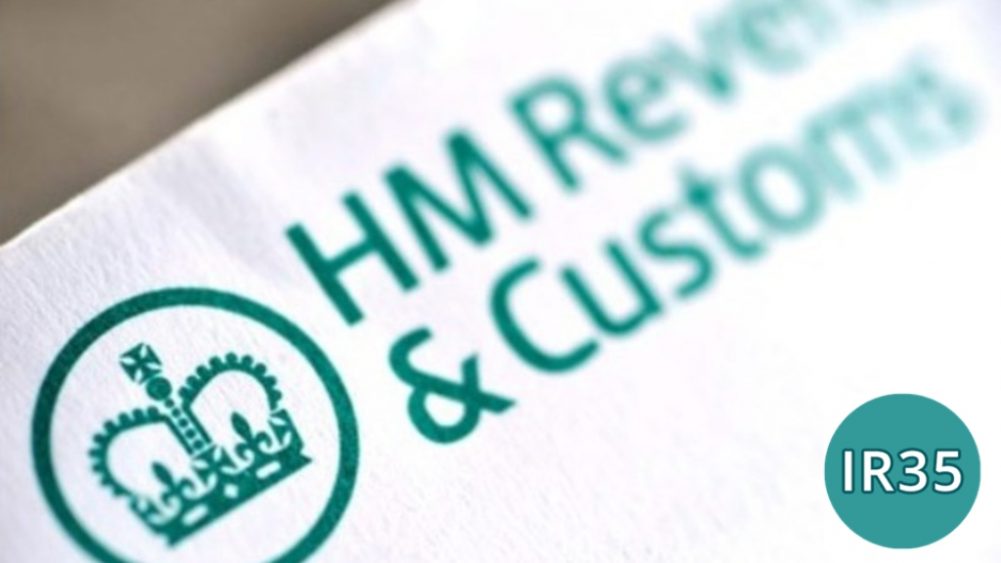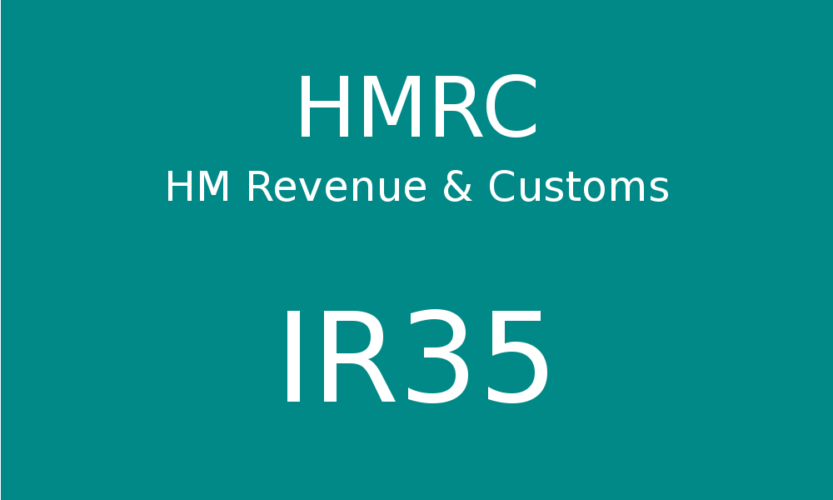
Logistics and IR35
The changes to off payroll in April this year have far reaching consequences for logistics, for recruiters and haulage firms alike. Here we look at the changes to come and what hey mean to the industry and the way drivers are paid and taxed.
The background
The changes to off payroll are part of a clampdown by HMRC against what they call ‘disguised remuneration’.
They view disguised remuneration as contractors operating through a limited company and gaining the tax advantages of doing so while in effect being ‘employees’ of just one ‘employer’.
The reform is therefore intended to correct this ‘anomaly’ and tax contractors in the same way as regular employees.
This reform was enacted in the public sector in 2017, now it is being rolled out in the private sector as well.
Inside or out?
The reform is intended to tax the so-called ‘permietractor, not wipe contracting off the map.
Genuine contractors, those that work on specific projects for multiple end users, will be deemed to be outside of IR35 and therefore still able to operate through their PSCs. Unless, of course, the contract is deemed to be inside IR35…..
the IR35 changes that are coming in are more focused on individual assignments rather than the person. What they are saying is you can be self-employed invoicing client A but if client B determines his assignment is in scope then you must be paid PAYE for this assignment.
Granted there are still qualifying criteria to be deemed self-employed but the focus will very much be on the status determination given by the end user.
But for those deemed inside IR35, the days of the PSC are over, they will be paid agency or umbrella PAYE, and that’s all there is to it!
What does ‘inside’ IR35 actually mean?
There are a number of determining factors to decide whether or not a contract is inside or outside of IR35. They include the following:
SDC – supervision, direction and control. Is the contract subject to this from the end user?
MOO—Mutuality of obligation. Does the contract involve working for multiple, or just the one engager?
Status determination
HMRC has a tool designed to assist with determining the status of a contract called CEST. Unfortunately, in the opinion of many, this is of limited use as it has not proven to be a reliable and could be open to challenge.
As a result, a number of companies have entered the market offering alternative status determination tools, and for many recruiters this is probably your best bet, if you don’t want to do the assessments yourself.
The responsibility for assessing the determinations will normally rest with the end user as the employer of the contractor, that’s how the legislation is framed, it isn’t a question of recruiters seeking to wriggle out of their responsibilities!
The buck stops with you, as the end user, if the determination is wrong!
Status must be determined on a contract by contract basis
Blanket determinations, where all contracts are determined collectively, might seem a tempting short cut but this is not permitted. Each contract must be individually tested to assess its status under IR35. It’s vital to bear in mind that it is the assignment that is being tested, not the person fulfilling the role!
However, please note there are some exceptions to which end users this applies to – small companies with less than £10m turnover or under 50 employees are currently exempt from the legislation.
No further delays
The reform, of course, was originally scheduled for implementation last year, but the impact of Covid forced the Government to delay for a year. But this time, despite challenges and wishful thinking that a further postponement would occur, it’s happening!
The KIDs are all right….
There is further work for agencies to do as part of their preparations, one of which is the Key Information Document (KID).
Contractors working inside IR35 under the Off-Payroll rules should expect to receive a Key Information Document (KID) from their agency at the beginning of each new contract.
Designed to deliver transparency and prevent unwitting engagement with tax avoidance schemes, KIDs are supposed to provide workers with an overview of how any fees and deductions will impact their take-home pay.
This enables contractors to make a fully informed decision regarding their next contract and shows up non-compliant tax treatment of their earnings.
Where there’s a change, there’s a scheme….
Off payroll reform is an opportunity for all manner of tax avoidance schemes to tempt contractors faced with the loss of their PSC operating method.
Posing as bona fide umbrella companies and offering enhanced rates, many contractors will be tempted by them.
Operating through a variety of methods, offering a notional salary and the rest in the form of an annuity or loan, these methods are not compliant and may well result in an HMRC investigation.
Not just the contractor, if an agency is tempted to partner with one of these tax avoidance vehicles, they are party to tax avoidance and will be chased for the tax due by HMRC.
Plus other methods, such as Mini Umbrella Companies (MUCs) have emerged which have also been deemed non compliant.
Fiddling the VAT….
Another scheme to exploit IR35 is to manipulate the SIC code of contractors from their actual industry to an industry such as hospitality in order to claim more VAT. Again, this will act as a red flag to HMRC that tax avoidance is afoot so don’t be tempted by this either!
Remember, ultimately this is all about ensuring th correct amount of tax is paid, and not bending the rules!
Determining the payment method
Generally speaking, this will be either agency PAYE or umbrella PAYE.
Many contractors are reluctant to use an umbrella due to a combination of bad reputation through the tax avoiding element and the fees associated with it. Equally, many end users are reluctant to be associated with them for the same reason.
Umbrella companies have their own accreditations, notably FCSA and Professional Passport.
Provided the umbrella has recognised accreditation, they should be compliant and therefore suitable to use.
Blanket ban on contractors….
Some end users have decided, as a result, to no longer use contractors. Whether this stance continues after April will depend on whether they feel they are cutting off their noses to spite their face, time will tell!
Umbrellas, agencies and PSLs
If operating through umbrella, most agencies will have a preferred supplier list (PSL) of the umbrella companies that they are willing to work with. In theory, provided the umbrella is compliant, the contractor should be free to use their umbrella of choice.
In practice, however, the agency will have arrangements with a limited few umbrellas, mainly the large players, which does tend to make the market restricted, which of course is just how the big players want it!
What effect on rates?
Drivers moving from PSC to agency PAYE or umbrella will be looking for increased rates to make up their loss of income, but with margins for payroll so low, any increase will have to come from end users.
Contractor discontent is understandable from their point of view, and many have tended to regard the agencies as the villains of the piece when they are merely responding to the change of legislation.
Ultimately, they just have to suck it up, they’ve enjoyed an unfair advantage for too long and they are now being treated like any other employee.
Conclusion
If you have not yet started to prepare for off payroll reform in April, it’s time to get a shift on, there is a lot to get organised if you are to be prepared and compliant in time.
Both recruiters and end users have preparations to make in order to be compliant come April, and we see our role very much as wanting to help all elements in the supply chain to know what they need to do to be ready.
It’s in everyone’s interests not to have a last minute panic and slip up because you are rushing your preparations.
It really is a case of ‘don’t shoot the messenger’ we’re only trying to help spread a little understanding of this complex legislative change!
So far as drivers are concerned, be aware that the end user is always likely to err on the side of caution so far as determinations are concerned, but remember they are the ones held responsible if they get it wrong!
Hopefully things are clearer now about the implications and what you need to do in order to be ready for April.
For further information please visit – https://www.gov.uk/topic/business-tax/ir35

